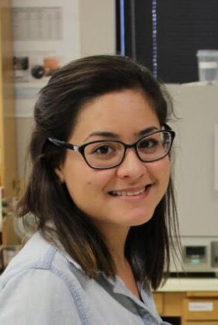Author: egiles
-
NUTR Research Symposium 2021
Both undergraduate and graduate students from the Giles lab had a great showing at the Department of Nutrition Annual Research Symposium. We managed to snap pictures of a few of you.
-
New Paper: Rodent Models of Obesity & Breast Cancer
Dr. Giles and her collaborator Dr. Liz Wellberg published a review with all of their tips and tricks to get rodents obese to study breast cancer. Check it out here! https://link.springer.com/article/10.1007/s10911-020-09463-2
-
Karen spent spring break visiting the NCI
My main goal in participating in the John Milner Nutrition and Cancer Prevention Research Practicum was to expand my knowledge of cancer research related to nutrition. My research interests are in further understanding the role of nutrition and bioactive compounds in the prevention of chronic diseases, specifically cancer. As a young scientist at the beginning…

